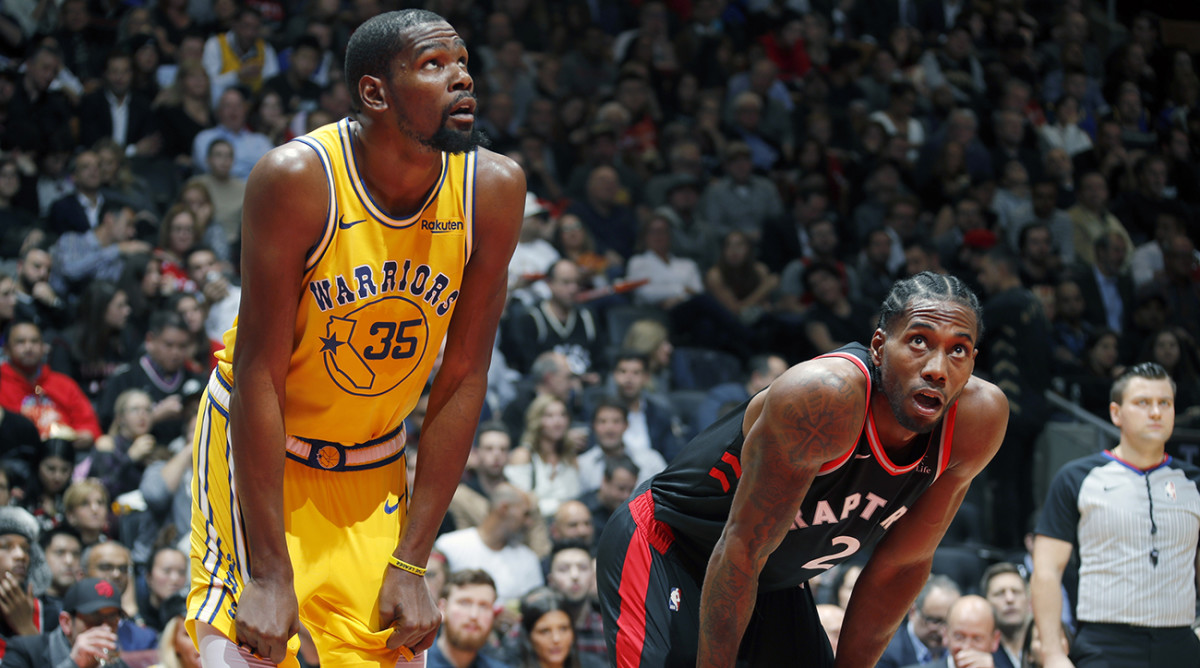What Does This Summer Mean for the Future of Free Agency?

For all of the Clippers’ asset accumulation and smart planning over the past couple years, their league-shifting summer depended on Kawhi Leonard’s ability to recruit a second superstar. As Leonard waited to make his decision on where to sign, it’s become clear he was less concerned with the current constitution of the teams he was talking to, and more interested in finding a second star who could join him in his preferred destination. If the Clips couldn’t nab Paul George with a historic bevy of assets, would Kawhi have fled to the Lakers?
The Lakers themselves have seemingly fallen backwards into stars the last couple seasons. LeBron James didn’t personally meet with any other teams when he decided to join L.A. in 2018. He announced his decision within one day of free agency opening, taking a midnight meeting with Magic Johnson but eschewing the long, deliberate process he undertook in 2010. In LeBron’s first foray into free agency, he took a week to decide his new team, and organizations prepared elaborate pitches for how they could help James both on and off the court. In 2018, James seemed hellbent on joining the Lakers, even if it meant a shotgun marriage with Luke Walton. And a year later, Anthony Davis joined James, demanding to join a Lakers team with a messy front office, an uncertain coaching situation, a star who had just missed the playoffs for the first time since 2005.
Kyrie Irving and Kevin Durant took even less time than James to announce they were joining the Nets this summer. Irving’s decision was considered an open secret in the days leading up to June 30, and was reported as final within minutes of free agency starting. Irving at least met with the Nets that night, then he announced his decision later in the week with a sleekly produced video of himself hanging around Brooklyn. That’s a far cry from Durant, who Instagrammed his decision to sign with the Nets not long after 6 p.m. on June 30, without sitting down with Brooklyn GM Sean Marks. Did Durant even want to hear Marks’ vision for the future? Or how coach Kenny Atkinson plans to use him in the offense?

The most recent decisions of Kawhi, LeBron, AD, KD, and Kyrie (and to an extent, Paul George) reflect something of a shift in team building. First, it’s obvious that ”tampering”—for lack of a better word—is rampant, if the biggest stars in the league are making career-altering decisions seemingly without carefully considering their options. Second, if free agency meetings are dead, are GMs really selling players on joining their organizations? Or are players making their decisions long in advance, and forcing organizations to figure things out once they want to play there?
That second scenario is what’s most interesting to me about this summer. Something about this free agency felt very...predetermined. The flurry of deals was obviously crazy. And nobody saw George as the star who would end up with Kawhi. But all of the important players who’ve had an opportunity to decide the last couple years wrapped up their free agencies very quickly, and it feels like their decisions are having less to do with on-court success and more to do with mysterious other factors.
I mean, good luck trying to figure out Kyrie’s or KD’s motivation, but why did they sign with the Nets? In his video, Irving, a New Jersey native, mentioned wanting to play at home. Durant basically told the Nets he was playing there, and he hasn’t said much about it since. Do either of them even really care about Atkinson? Why did they push for the signing of DeAndre Jordan, when Jarrett Allen is younger, better, cheaper, and already in place? Does it matter to Kyrie and KD that Caris LeVert is an up-and-coming talent?
Davis forced his way onto the Lakers even after Rob Pelinka fumbled most of his post-LeBron opportunities. As Rich Paul was trying to leverage the Pelicans to send his client to L.A., he was also complaining to the commissioner of the NBA how much he didn’t like the Lakers’ coach at the time. Is AD now hyped to play for Frank Vogel? What did he think of the veterans Pelinka chose to surround LeBron with last summer?
Here’s another question—what do all these questions mean? Essentially, it’s unclear how important general managers and on-court product are to recruiting stars at this point. At first blush, it looked like a win for the Nets and Clippers to recruit the stars they did, a payoff for meticulous years of planning and putting themselves in the position to go out and acquire such players. The front offices deserve credit for that level of planning, but the larger organizational stability and on-court product seemed less important to the players than the people (like me!) who’ve been touting teams like the Nets and Clippers for a year.
Davis left the Pelicans for a team that missed the playoffs and parted ways with its coach. Irving left a Celtics team with two emerging stars, then Al Horford, and Gordon Hayward. Durant left a team that has made five straight Finals. Kawhi just won a championship but it looks like he just really wants to live in Los Angeles.
This all makes team building very complicated for most general managers. It seems like the winning strategy of the “best” organizations the last couple summers has been to not be completely awful (sorry, Knicks), open up cap space, and then get out of the way. None of the stars have really seemed interested in their chemistry with their new coaches or fit with their new teammates. They were more so fixated on markets, and it’s murky where basketball fell on the list of priorities.
This doesn’t really bode well for the Denvers and Milwaukees of the world, teams who have built emerging powerhouses who’ll have to contend not only with the flashy markets on the court, but also keep their own stars from leaving for them one day. Whether it matters if those teams are good probably depends on your thirst of parity, but personally I enjoy when stars are a little more spread out. That’s objectively entertaining, but where I disagree with Adam Silver is that parity shouldn’t come at the cost of a player’s agency. Players should actually want to play in the small markets the NBA hopes to keep competitive.
Maybe it was always obvious, but as players have grown more powerful over the last decade, the point this summer drove home is that basketball itself, in its purest, most unfiltered form, isn’t necessarily the most important thing to the game’s biggest stars, even those who’ve tied their legacy to championship rings. (Seriously, why wouldn’t LeBron have met with the Nuggets last summer?) Smart management probably means less than how much a player wants to live in your city. Ultimately, even the best laid plans of the most mindful front offices are subject to the whims of superstars. The best players are the general managers now, and their decisions on where to play are more personal than ever.
